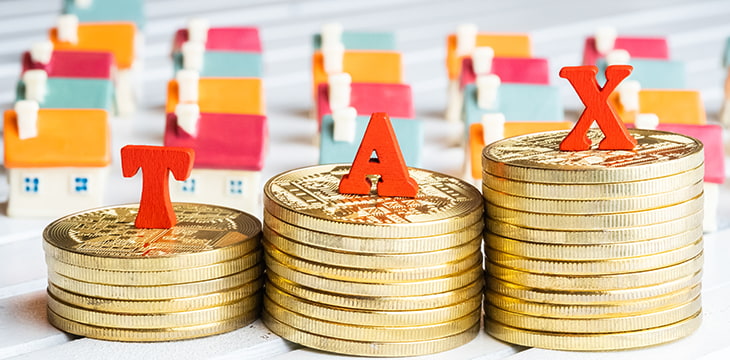Bitcoin users to pay 30% digital currency tax in India from April 1
The Lok Sabha, also known as the Indian Parliament, has passed the Finance Bill 2022-2023, which confirmed the 30% tax rate on all virtual digital assets (VDAs) with effect from April 1 in addition to other regulations. There has been a lot of noise since Finance Minister Nirmala Sitharaman announced taxation rules on digital currencies in the Budget 2022-23 Session in February. The recent announcement only further exacerbated that noise.
Here is the digital currency tax and proposed regulations:
On April 1, a 30% tax rate plus surcharges will be levied on transactions related to buying/selling digital assets similar to gambling and horse race betting. However, any losses from the transfer of digital assets will not be allowed to be off set against the income arising from the transfer of another virtual asset. While computing the income from the transfer of digital assets, no deduction regarding any expenditure (other than the cost of acquisition) or allowance will be allowed.
A 1% Tax Deducted at Source (TDS) on payments towards digital assets over INR10,000 (or $131.30) per year and taxation of digital currency gifts in the hands of the recipient. The threshold limit for TDS will be INR50,000 ($656.48) per year for those who are required to get their accounts audited under the IT Act. The TDS provision will come into effect from July 1, 2022.
VDAs will include all digital currencies and NFTs. A code or token or number, which can be transferred, stored, or traded electronically will be called a VDA.
The announcement hit many Indians hard as the government proposed to further tighten the terms for taxation of VDAs by not allowing investors to set off the losses of one digital asset against the profits from other digital assets. Regardless of what income bracket one falls under, they will be responsible for paying a 30% tax rate from April 1. Disappointed, Uddalak Das, a technology entrepreneur from India, told CoinGeek that people would pay tax on capital without gaining anything at the end of the day.
“And on top of that, we have 1% TDS on every transaction! By the 10th transaction, people would spend more than 10% of their capital without gaining anything. What sense does it make?” Das added.
Simultaneously, the government is working on a Digital Currency Bill, a piece of legislation to regulate digital currencies. However, it has not been released yet. The Bill seeks to “create a facilitative framework for the creation of the official digital currency to be issued by the Reserve Bank of India.” The Bill is slated to be tabled for discussion in May 2022.
Like with any new rule of law, the approval of the “crypto tax” also brought a multitude of emotions across the digital currency community in India. Operations Manager Varunjesh Bhambri seems unaffected by the move, saying this might impact large investors more than common retail investors. On the other hand, software architect Chirag Sharma looked frustrated and “quite” worried.
He said, “It looks like the government is strongly discouraging people from investing in digital currencies, and exploring any use cases of this technology. India should not miss out on this wonderful opportunity of adopting and eventually becoming a Web3 hotspot. It’s a bummer!”
When asked whether the digital currency regulations could hinder the growth of BSV in India in the future, BSV Blockchain Association’s Kapil Jain told CoinGeek that he doesn’t think so.
“I think the government is doing the right thing. The digital currency space is acting like the gambling and betting industry right now, so they are taking the measures required to regulate the impulsive [speculative] side of it,” Jain said.
“A 30% tax rate on digital assets is a good thing,” he added.
Watch: CoinGeek New York panel, Blockchain for a Better Supply Chain & Sustainability
Source: Read Full Article



